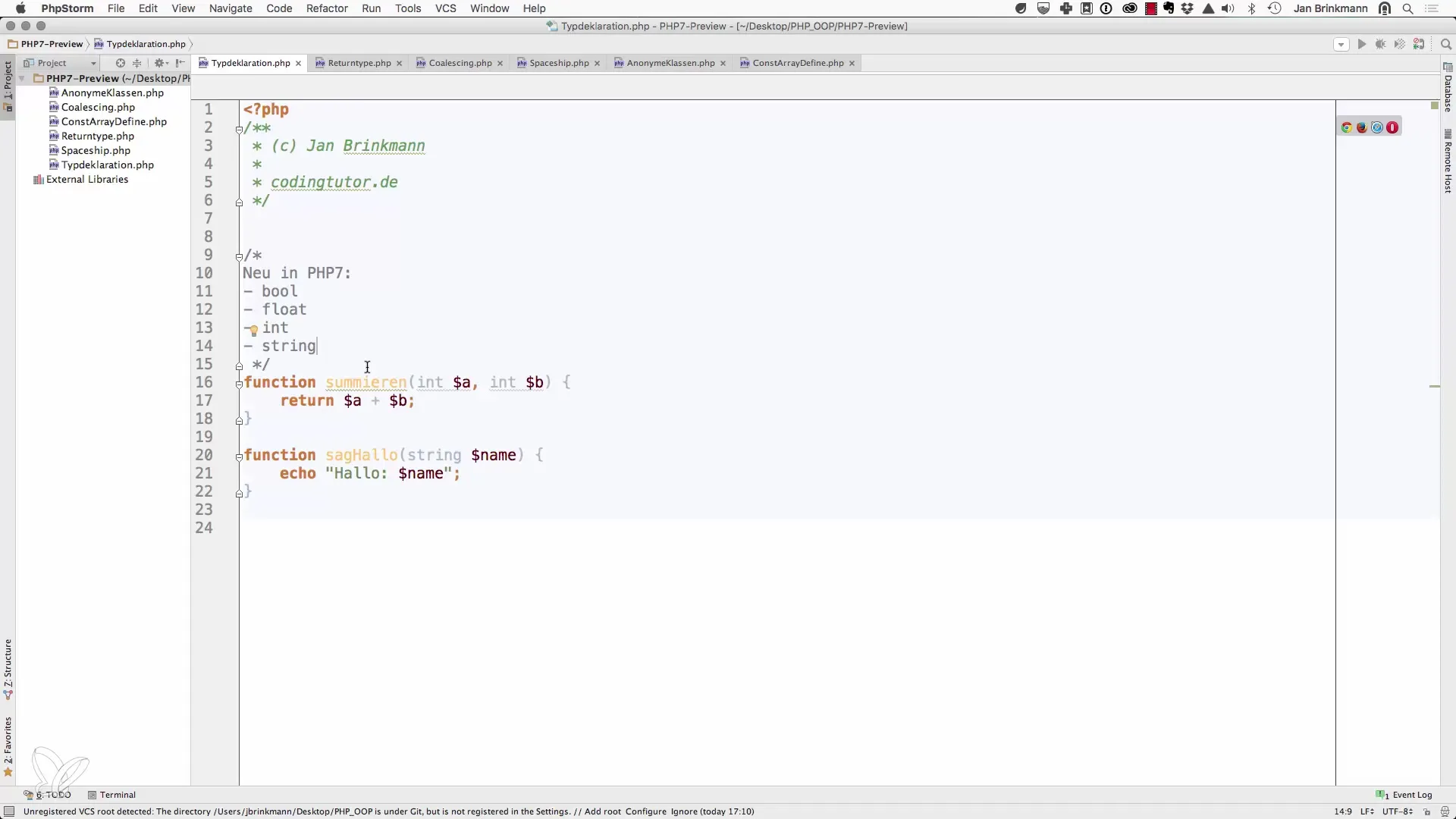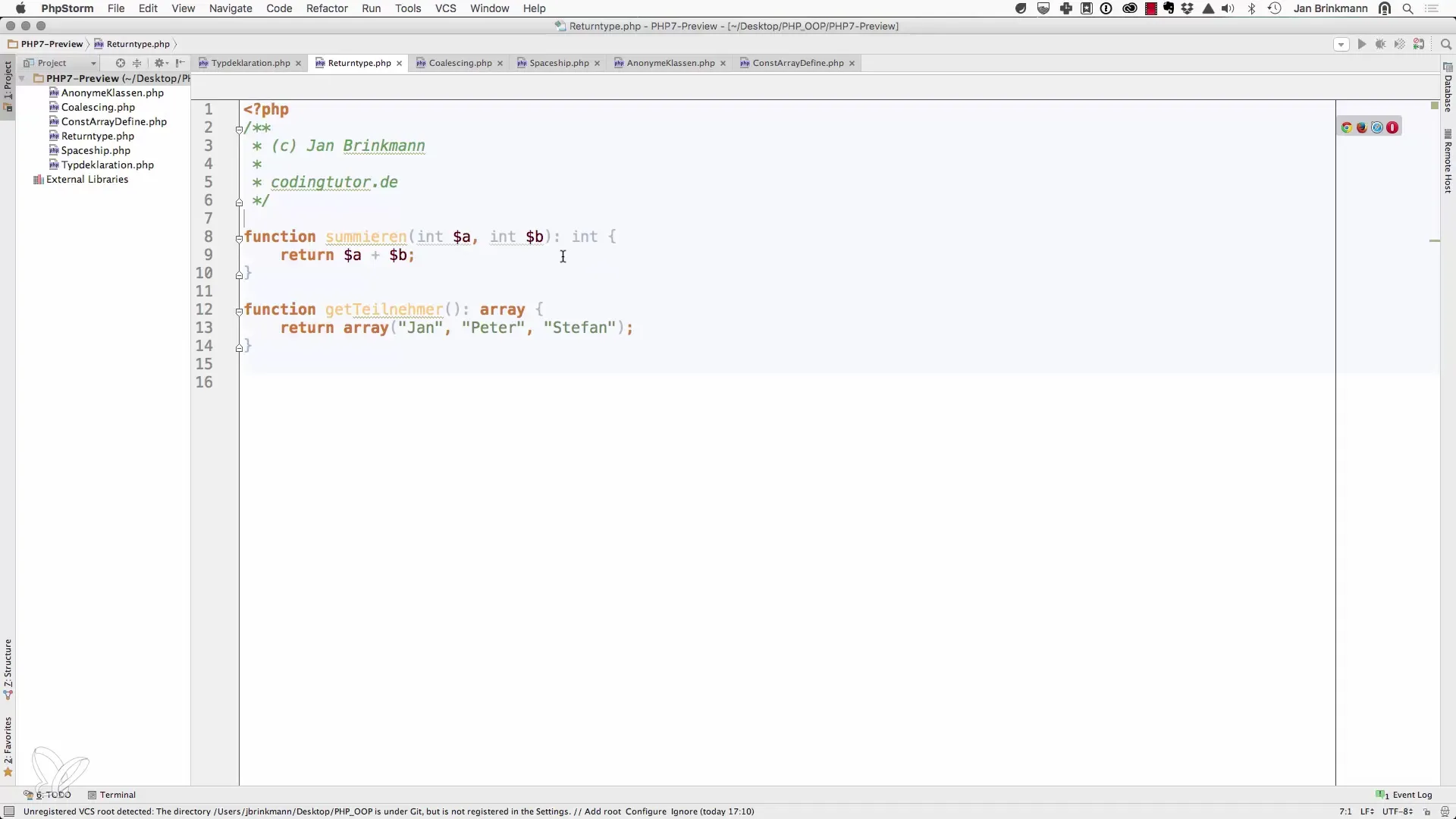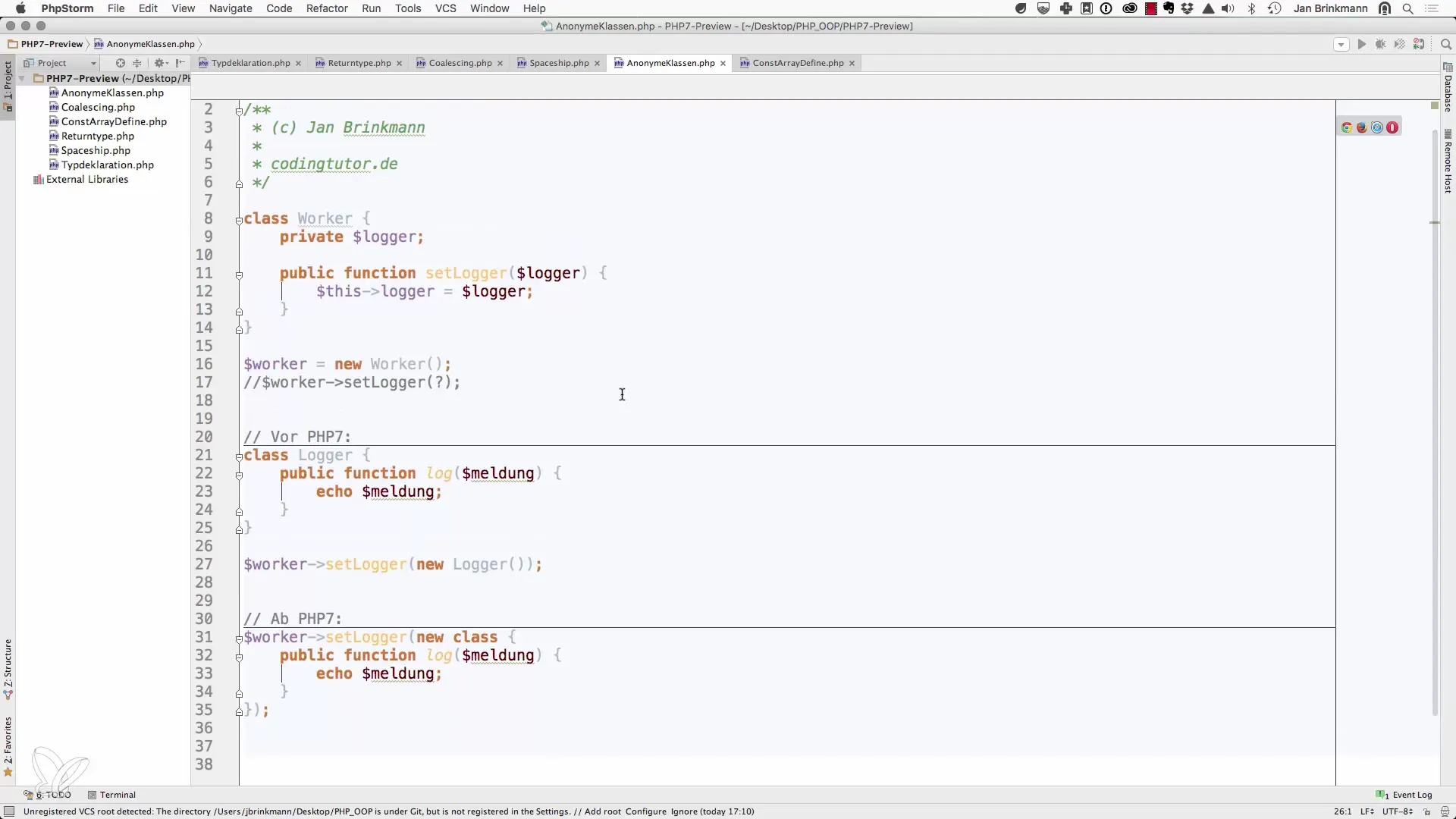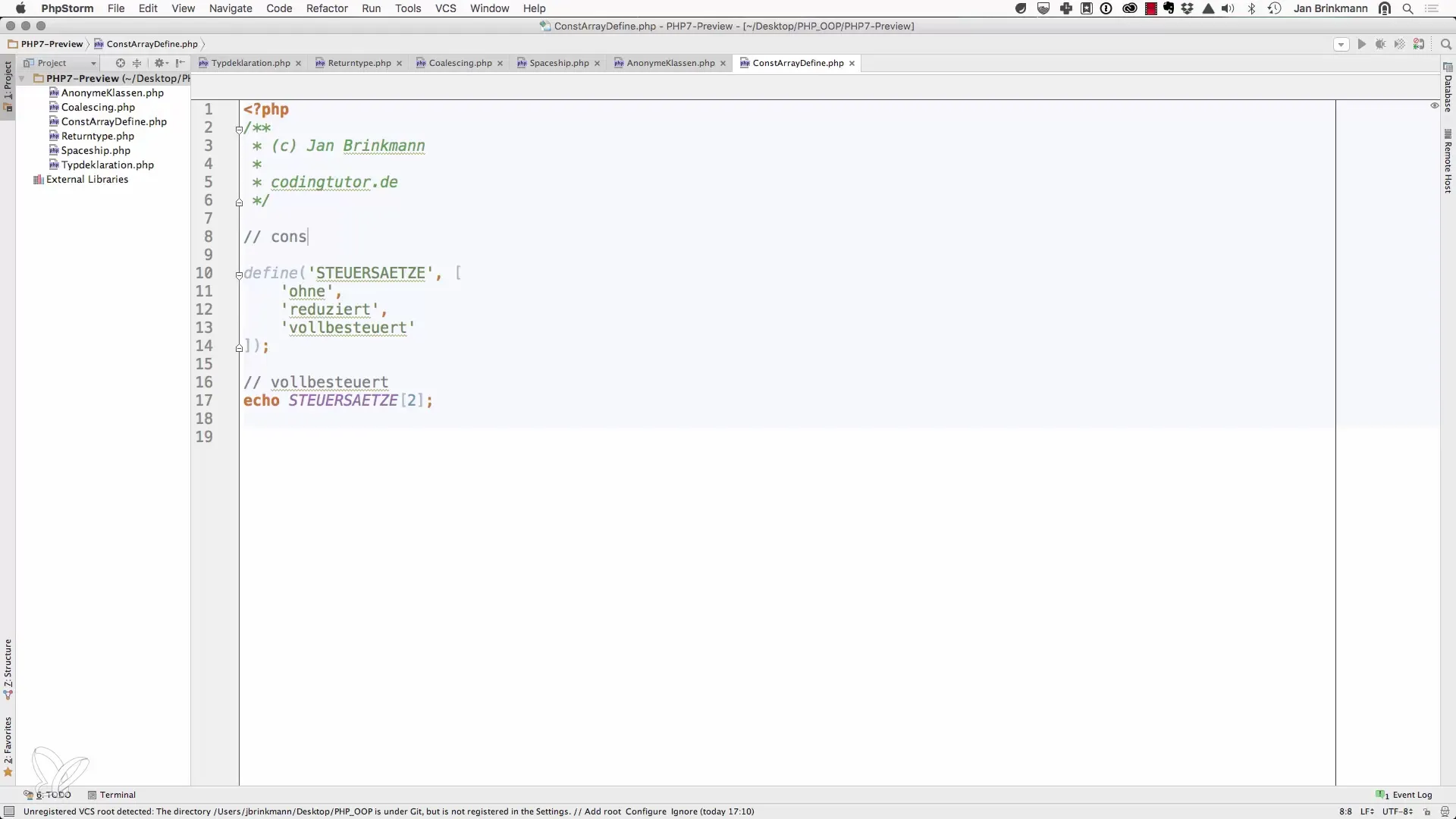PHP 7 brings some significant changes that can greatly ease your work as a developer. Instead of drowning in the plethora of new features, let's take a look at the essential updates that will improve your programming life. From new data types to elegant operators – these changes are on the agenda, and it's time to explore them.
Key Insights
PHP 7 has changed both the functionality and the syntax. The support for scalar data types as parameters, the introduction of return types, the coalescing operator, as well as anonymous classes are some of the most notable new features. These changes not only provide you with improved readability but also stronger type safety.
Step-by-Step Guide
Using Scalar Data Types as Parameters
Since PHP 7, you can use scalar data types like integer, float, boolean, and string directly as types for your function parameters. Here's how: if you want to define a function with an integer parameter, you write it directly in the function.
This means that every parameter passed to the function is type-safe. If the value passed is not compliant, you will receive a type error. This makes your code more robust.

Using Return Types
In addition to parameter types, you can also specify which data type will be returned by a function. In the function above, the return type is specified as: int. This indicates that the function should return an integer. This clear structure improves not only readability but also maintainability of the code.

Arrays and Their Typing
Another innovation is typed arrays. PHP 7 does not allow you to specify the data type of arrays directly, as in Java or C#. However, you can ensure that an array only contains certain data types by performing custom validation.
Although this is a limitation, it is a first step towards strict typing in PHP.
The Coalescing Operator
A very useful new operator is the coalescing operator??. It allows you to perform a simple check to see if a variable exists and is not null. This can greatly enhance usability:
This means that if the user parameter in the URL is not set, the string "nobody" will be used. This not only saves you lines of code but also makes the code more readable and compact.
Introduction of the Spaceship Operator
The spaceship operator <=> is another exciting feature. This operator is used as a comparison operator and returns -1, 0, or 1, depending on whether the left operand is less than, equal to, or greater than the right operand. This significantly simplifies comparisons and reduces the need for often complex if-else structures. Here’s a short example:
If $a is less, you get -1; if they are equal, 0; and if $a is greater, 1.
Anonymous Classes
With PHP 7, you can create anonymous classes, which is especially useful in object-oriented environments. This saves you the need to define a class name for one-time instances.
This not only simplifies the structure but also maintenance and readability of your code.

Constant Arrays
Another update is the use of constant arrays. Previously, you could only define constants using the const keyword. Now, you can also use define() to create arrays, making it more flexible.
This allows you to group constants efficiently and simplify access to them.

Deprecated Functions
It is important to note that some functions, such as the mysql_* functions, are deprecated in PHP 7. You should switch to the PDO extensions to ensure robust database access.
This allows you to work with databases in a safer and more modern way.
Summary – Changes in PHP 7: A Guide to Object-Oriented Programming
PHP 7 brings significant changes that enhance the efficiency and security of your programming. With the new data types, improved operators, and the possibilities of typed arrays, you are provided with a more effective programming environment. Additionally, by switching to PDO for database access, you establish a solid foundation for working with objects.
Frequently Asked Questions
What are the main new features in PHP 7?PHP 7 introduced new data types for parameters, return types, the coalescing operator, anonymous classes, and the spaceship operator.
Can I still use old functions in PHP 7?Some old functions like the mysql_* functions are deprecated and should no longer be used. PDO is recommended instead.
How can I use anonymous classes in PHP 7?You can create anonymous classes directly with new class { /* methods and properties */ }, without having to define them beforehand.
What is the coalescing operator?The coalescing operator?? checks if a value exists and returns an alternative value if it does not.
What does a typed function in PHP 7 look like?A typed function in PHP 7 defines the parameters and return values by specifying data types, e.g. function add(int $a, int $b): int.


